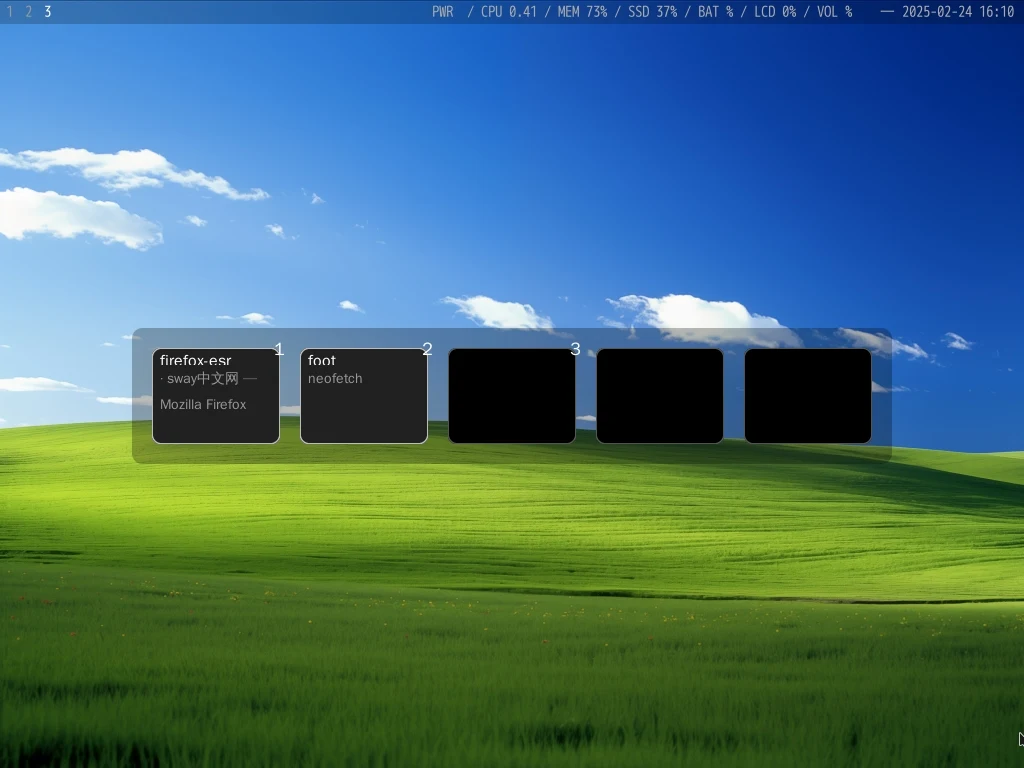
Sway是一个平铺样式的窗口管理器,基于Wayland合成器,是X11的i3窗口管理器的替代品。它与现有的i3配置兼容,支持i3的大部分功能,以及一些额外功能。
Sway允许您按逻辑而不是按空间排列应用程序窗口。默认情况下,窗口按网格排列,这样可以最大限度地提高屏幕的效率,并且只需使用键盘即可快速操作。
Sway使用手册请参考 man-k sway,更多内容见Sway中文维基,还有Sway常用软件和脚本。
推荐Sway完整桌面配置手册,该手册包含sway、foot、wofi的完整安装配置说明,你可以直接参考使用。